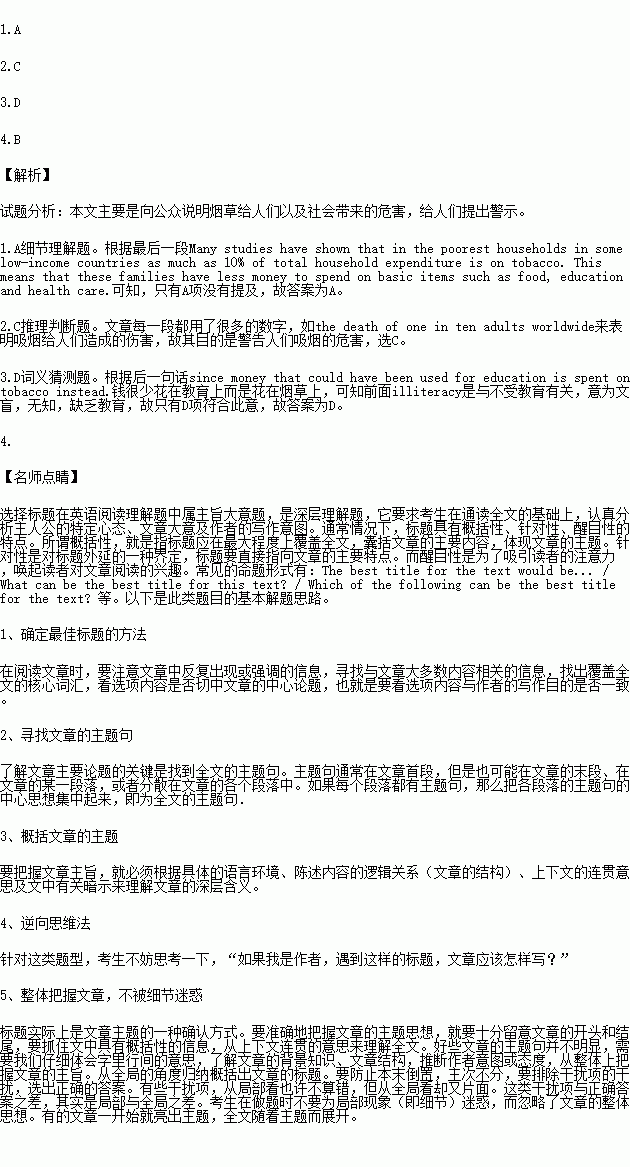题目内容
Tobacco is the second major cause of death in the world. It is responsible for the death of one in ten adults worldwide (about 5 million deaths each year). If current smoking patterns continue, it will cause some 10 million deaths each year by 2020. Half the people that smoke today, which is about 650 million people, will eventually be killed by tobacco.
Tobacco is the fourth most common risk factor for disease worldwide. The economic costs of tobacco use are equally devastating (破坏性的). In addition to the high public health costs of treating tobacco-caused diseases, tobacco kills people at the height of their productivity, depriving (剥夺) families of breadwinners and nations of a healthy workforce. Tobacco users are also less productive while they are alive due to increased sickness. A 1994 report estimated that the use of tobacco resulted in an annual global net loss of 200 thousand million US dollars, a third of this loss being in developing countries.
Tobacco and poverty are closely linked. Many studies have shown that in the poorest households in some low-income countries as much as 10% of total household expenditure is on tobacco. This means that these families have less money to spend on basic items such as food, education and health care. It contributes to a higher illiteracy rate, since money that could have been used for education is spent on tobacco instead.
1.According to the passage, tobacco affects a family in the following aspects EXCEPT _______.
A. relationship
B. education
C. health
D. economy
2. The text uses a lot of figures to _____.
A. show we shouldn’t smoke too much
B. tell people exactly the number
C. warn people of the harm of smoking
D. indicate the writer had a careful investigation
3.The underlined word “illiteracy” in the last paragraph means ____.
A. great intelligence
B. good education
C. bad behaviors
D. inability to read or write
4. What is the best title of the passage?
A. Tobacco Should Be Banned.
B. Why Is Tobacco a Major Threat to Public Health.
C. Tobacco and Poverty Go Hand in Hand.
D. Tobacco May Cause Death.

